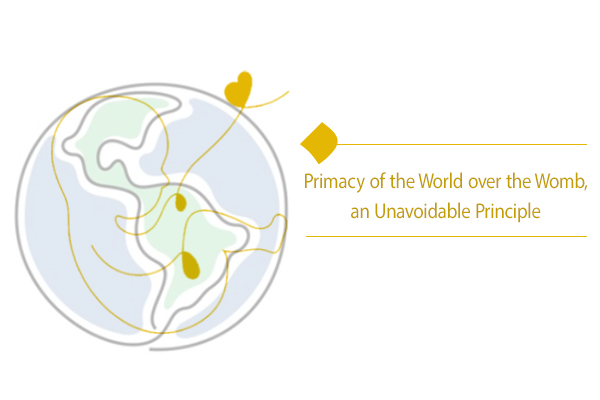The Primacy of the World over the Womb in All Moments of Fetal Development
It might have happened to you that you are out to run some errands, but instead you find yourself doing something else. It is like a child who is competing in a game, but in the middle of the game, she forgets why she is in the competition. As a matter of fact, we are always moving towards a goal. This move starts from our fetal stage in the mother’s womb.
In the fetal stage, with a predetermined schedule, we give primacy to a world that we neither know nor understand. When in our mother’s womb, we do not have any idea that vision is impossible unless we have healthy eyes, the type of eyes that can receive natural light wavelengths. In order to be able to walk, we need two feet and toes which are arranged next to each other with a specific size and order. There has not been any experience from the world for us to know that instead of being floated in an environment filled with water, we will be surrounded by air, yet we get ready to enter this world by developing lungs in the womb. In fact, the only important matter for us is to get ready for a healthy and robust birth into this world.
While in the womb, we are constantly developing and getting equipped with the tools that not only are useless in our fetal life but also annoy and limit us sometimes. Since we have accepted the primacy of the world over the womb, we are getting ready to come into this world with an unbelievable speed, and we do not deviate from the purpose and plan that has been set for us even for a moment.
Ignoring the Primacy of the World over the Womb
When comparing the world with the womb, the fetus gives primacy to living in the world and the environment that she is supposed to move to after this stage. In order to better understand this idea, let us consider a fetus who does not pay attention to the primacy of the world over the womb and bases her life on this nine-month life. Instead of developing proper tools and following the precise, sensitive, and consistent plan that has been made for her, she decides to follow her own fetal dreams and wishes. She starts to make excuses for developing such tools which make it difficult for her to move in the dark and tight environment of the womb. She postpones or temporarily stops developing organs because of the difficulty of this predetermined plan. For example, she feeds too much on the blood through the umbilical cord, which is made for her growth and needs, or feels she knows better how to manage her needs and develop her body organs, or makes decisions on the arrangement of her chromosomes. Therefore, how would a fetus like this be born after nine months? Do we predict a healthy birth for her?
In the best case, we face a fetus that is severely handicapped or suffers from serious health issues and in no way is capable of living a peaceful life. She cannot make use of the opportunities provided to her in the world; she has to spend most of her life making up for the shortcomings that result from not recognizing her priorities and not accepting the primacy of the world over the womb. Thus, it is crucial for the fetus to focus on the world and environment that it is supposed to be born into, instead of the short and limited fetal stage in the mother’s womb. This does not mean to neglect the fetal stage needs. As unpreparedness for worldly needs and conditions can create challenges and bring mortal risks for the fetus, neglecting the needs of the fetal stage can also cause premature birth and problems in the process of fetal development. A fetus who has not been fed well in the womb, has not been implanted in an appropriate place, or has not had an ideal environment, definitely cannot complete the process of her development and organ making in the mother’s womb fully and strongly .
In this article, we discussed fetal development in the womb. It was mentioned that the fetus gives primacy to the world and its needs without understanding the world she is supposed to step into. She develops organs and gets ready for a healthy birth into the world day and night. We imagined a situation where a fetus gives primacy to the nine-month fetal stage and ignores the primacy of the world over the womb, and this will result in nothing but birth defects and a disabled life in the world . Finally, we stated that giving priority to the primacy of the world over the womb does not mean neglecting fetal life.
If you are interested in knowing more about this process, follow the lessons on the womb-like quality of the world.
Have you ever looked at fetal life from this point of view? We would be glad if you share your opinions with us.

